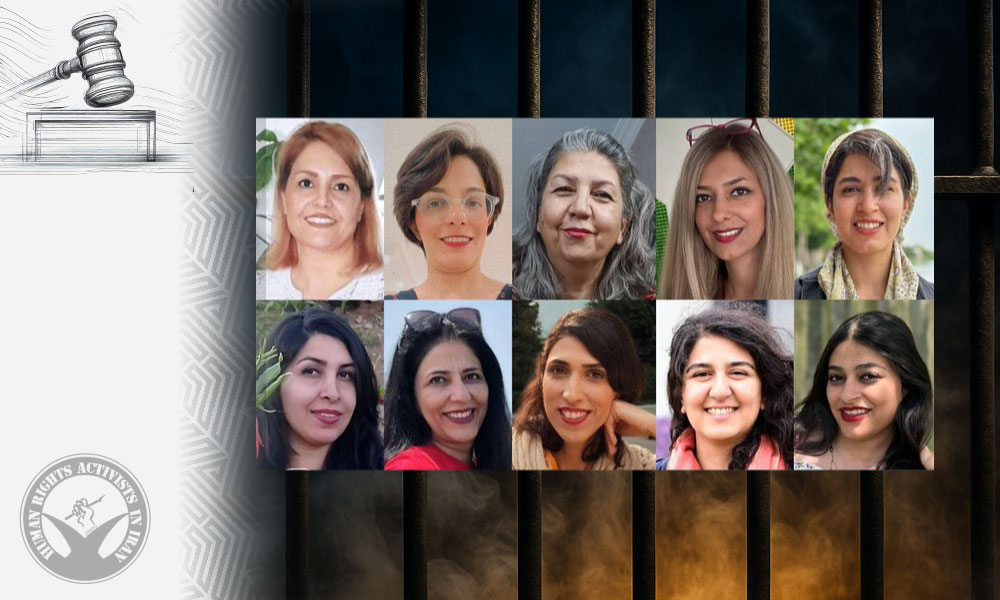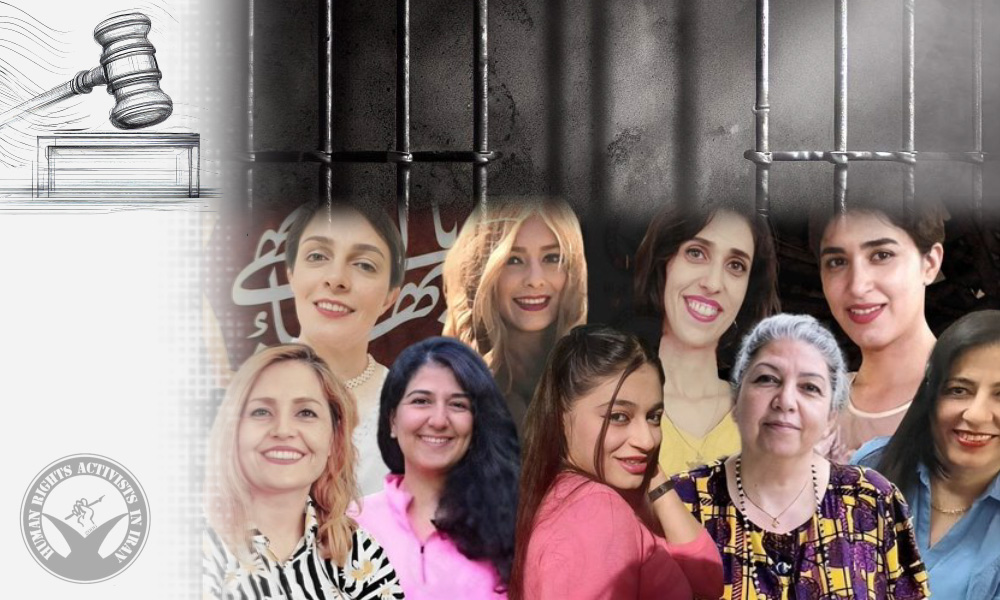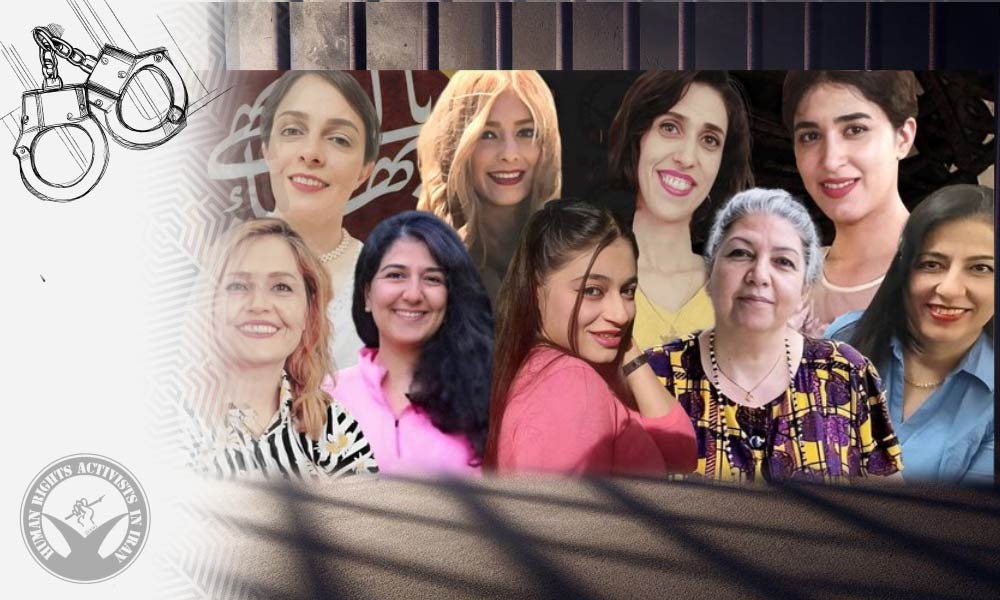HRANA – The convictions of Negin Khademi, Yeganeh Agahi, Yeganeh Roohbakhsh, Neda Badakhsh, Mojgan Shahrezaei, Shana Shoughifar, Arezoo Sobhanian, Parastoo Hakim, Bahareh Lotfi, and Neda Emadi, ten Baha’i women living in Isfahan, have been upheld in full by Branch 47 of the Isfahan Court of Appeals.
According to HRANA, the news agency of Human Rights Activists in Iran, the women were initially sentenced by the Isfahan Revolutionary Court to a combined 90 years in prison, along with fines and complementary punishments, which have now been confirmed on appeal.
The ruling, issued on September 28, 2025, was delivered to their defense attorney. According to the verdict, the women were convicted of “propaganda against the Islamic Republic” and “participation in deviant promotional and educational activities contrary to Islamic law.” These charges were based on activities such as organizing English, art, music, and yoga classes, and nature trips for children and teenagers, including both Iranian and Afghan participants.
Collectively, they were sentenced to 90 years in prison, 900 million tomans in fines, confiscation of property in favor of the state, and two-year bans on travel abroad and use of social media. Parts of the prison terms and fines were suspended.
A source close to the families told HRANA: “The appeals court session was held without prior notice and in the absence of the defendants. The verdict was issued in absentia and only communicated to their lawyer. The court labeled the case as ‘security-related and confidential.’”
In the initial trial held in October 2024, Yeganeh Agahi, Yeganeh Roohbakhsh, and Negin Khademi each received 10 years in prison and 100 million tomans in fines, with one-third of the sentences suspended. Neda Badakhsh, Mojgan Shahrezaei, Shana Shoughifar, Parastoo Hakim, and Arezoo Sobhanian received similar sentences, with half of the imprisonment and fines suspended.
Neda Emadi and Bahareh Lotfi were each sentenced to five years in prison and 50 million tomans in fines, with four years of the prison term and half of the fine suspended.
As complementary punishments, all ten women were sentenced to the confiscation of seized belongings—including phones, laptops, digital devices, foreign currency, gold, and jewelry – two-year travel bans, and two-year bans on using social media.
The ten Baha’i women were arrested on October 23, 2023, by security forces in Isfahan and released on bail within two months from Dolatabad Prison. During detention, they reportedly endured psychological torture and threats of physical torture.
Yeganeh Agahi had previously been arrested before this case. Yeganeh Roohbakhsh, who was 19 years old at the time of her arrest, is the daughter of Arezoo Sobhanian, another defendant in the case.






